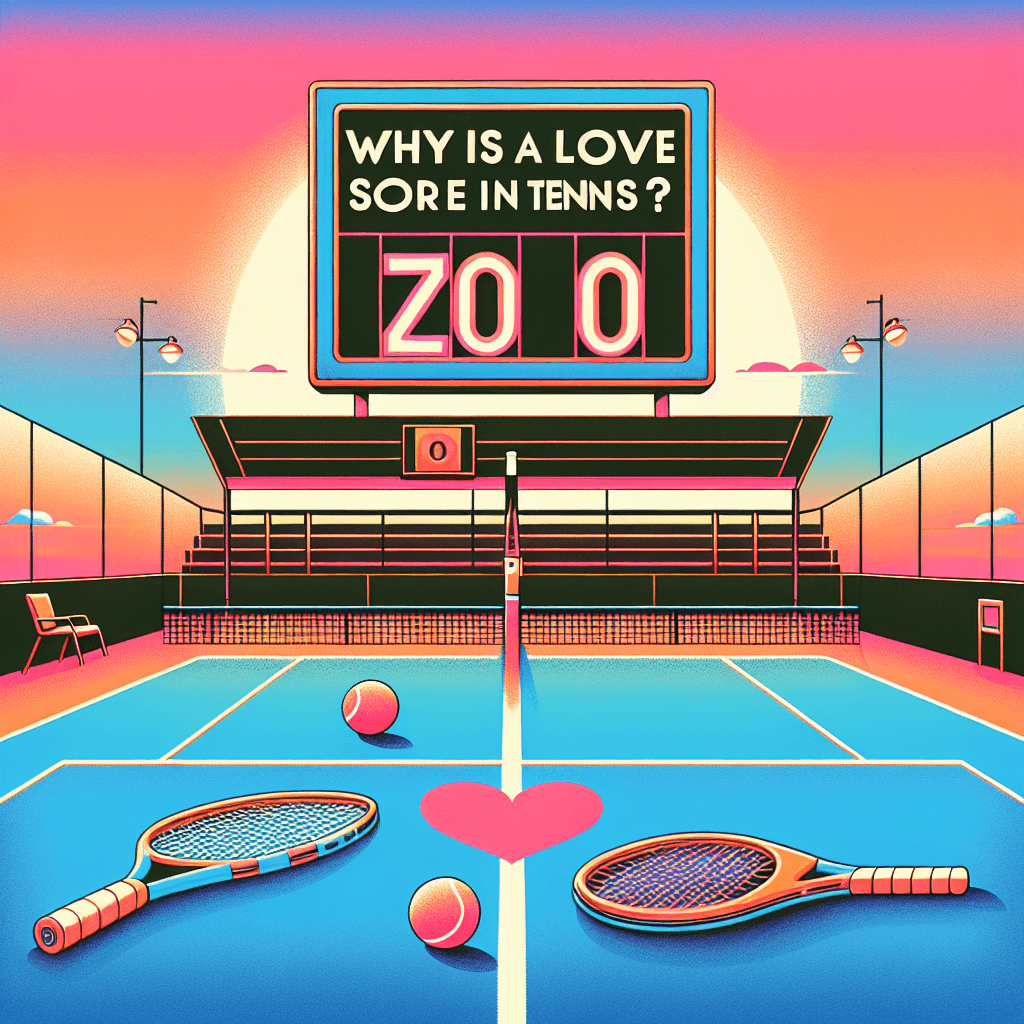From L'oeuf to Love: The Curious Case of Why a Love Score in Tennis is Zero
Ever wondered why a score of zero in tennis is called 'love'? This post delves into the peculiar and intriguing history behind one of sport's most unique terms.


Too Long; Didn't Read
The tennis score 'love' for zero is believed to come from the French word for egg, 'l'oeuf', which visually resembles a zero.
From L'oeuf to Love: The Curious Case of Why a Love Score in Tennis is Zero
Ever found yourself watching a gripping tennis match, perhaps a Grand Slam final, and heard the umpire declare a score like "fifteen-love" or "love-thirty"? For the uninitiated, it might sound a bit romantic, but for seasoned fans, it's just part of the game's unique lexicon. Why is a love score in tennis zero? This peculiar term for "no points" has baffled and intrigued sports enthusiasts for generations. While a definitive, universally accepted answer remains elusive, understanding the leading theories behind this charming quirk adds another layer of appreciation to the sport. This blog post will delve into the most plausible explanations for why, in the world of tennis, "love" means nothing at all on the scoreboard.
The Enduring Enigma: Unpacking "Love" in Tennis
Before we explore the origins, let's clarify: in tennis, "love" is simply the term used to denote a score of zero points within a game. For example, if the server wins the first point, the score is "fifteen-love." If the receiver wins the first point, it's "love-fifteen." This terminology applies only to points, not to games or sets. But where did this seemingly counterintuitive term come from? Several theories, mostly rooted in linguistic evolution and historical context, attempt to solve this puzzle.
Theory 1: The French Connection – "L'oeuf" (The Egg)
One of the most popular and widely cited theories traces the term "love" back to the French word "l'oeuf," meaning "egg."
- Visual Similarity: Proponents of this theory suggest that the shape of an egg (l'oeuf) visually resembles the numeral zero (0).
- Historical Context: Tennis, in its earlier forms (like "jeu de paume" or "real tennis"), has strong historical ties to France. It's conceivable that as the game spread to English-speaking countries, "l'oeuf" was anglicized, perhaps through mispronunciation or phonetic similarity, into "love."
While this explanation is charming and plausible, direct historical evidence firmly linking "l'oeuf" to "love" in tennis scoring is somewhat scarce, leading many to consider it a compelling piece of folklore.
Theory 2: Playing "For Love" (Of The Game)
Another contending explanation suggests a more conceptual origin. This theory posits that if a player had zero points, they were essentially playing "for love" of the game, rather than for the sake of winning or any material gain.
- Figurative Meaning: In this context, "love" would signify playing purely for enjoyment or passion, without any score to their name yet.
- Phrasal Origin: The English phrase "to play for love" (meaning to play for no stakes) existed around the time tennis was gaining popularity. It's possible this phrase was adopted into the scoring vernacular.
This theory appeals to the romantic notion of sport, but like the "l'oeuf" theory, concrete proof of its direct application to tennis scoring is debated.
Theory 3: The Dutch/Flemish Influence – "Iets voor lof doen"
A less commonly cited, but still considered, theory points to a possible Dutch or Flemish origin.
- Linguistic Roots: The phrase "iets voor lof doen" in Dutch means to do something for praise or glory. Some linguists speculate that "lof" could have been misunderstood or corrupted into "love" by English players.
- Trade and Cultural Exchange: During the periods when early forms of tennis were developing, there was significant trade and cultural exchange between England and the Low Countries, making linguistic borrowing possible.
However, this theory often faces scrutiny due to the less direct phonetic link compared to "l'oeuf."
Why Not Just "Zero"?
The persistence of "love" instead of the straightforward "zero" is part of tennis's rich tradition. The unique scoring system (15, 30, 40, game) itself is believed by some to have origins related to clock faces or medieval betting practices, though these are also debated. "Love" fits into this tapestry of somewhat arcane, historically-rooted terminology that gives tennis a distinct character. While modern sports often prioritize clarity and simplicity, tennis proudly carries its historical quirks.
Conclusion: A Charming Mystery Endures
So, why is a love score in tennis zero? The truth is, we don't know for certain. The "l'oeuf" theory, with its visual and phonetic appeal, remains the most popular explanation, closely followed by the idea of playing "for the love of the game." Each theory offers a fascinating glimpse into the possible linguistic and cultural pathways that shaped this unique sporting term. While the exact origin may be lost to time, the use of "love" for zero adds a distinctive and charming element to the sophisticated game of tennis. It’s a reminder that sports are not just about rules and scores, but also about history, culture, and the delightful peculiarities that make them unique. The next time you hear "love" called on the court, you'll know you're partaking in a little piece of sporting history, however enigmatic it may be.


